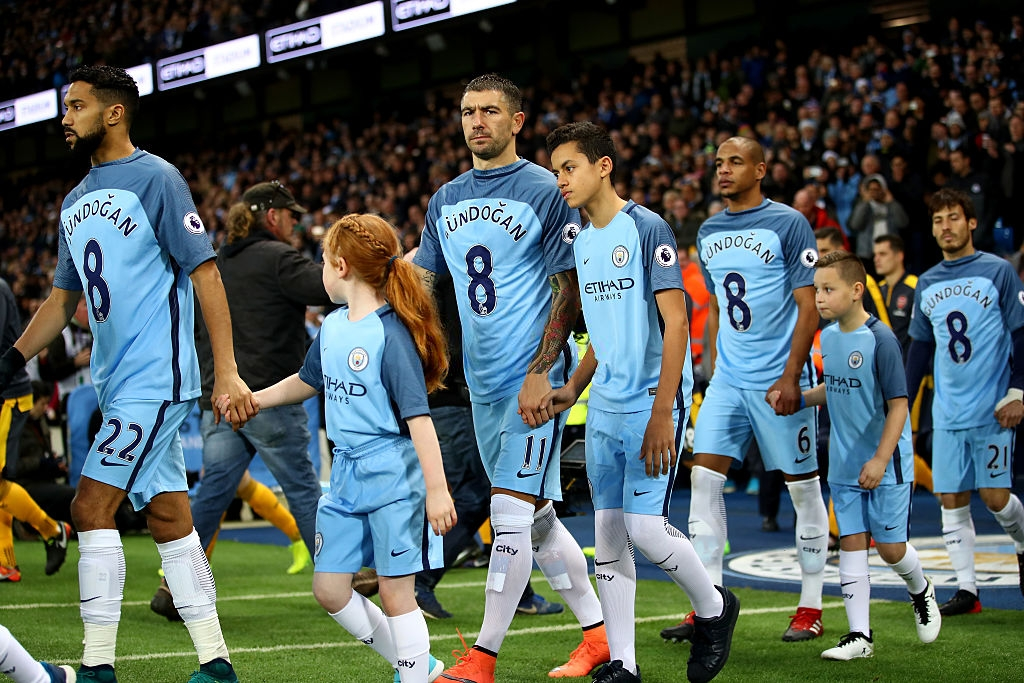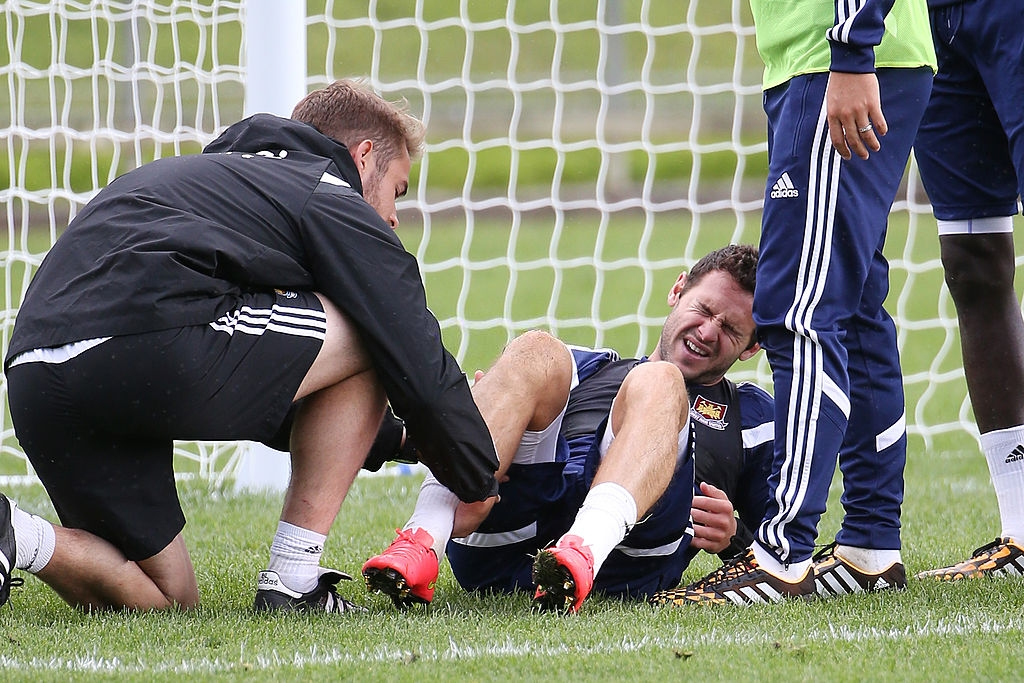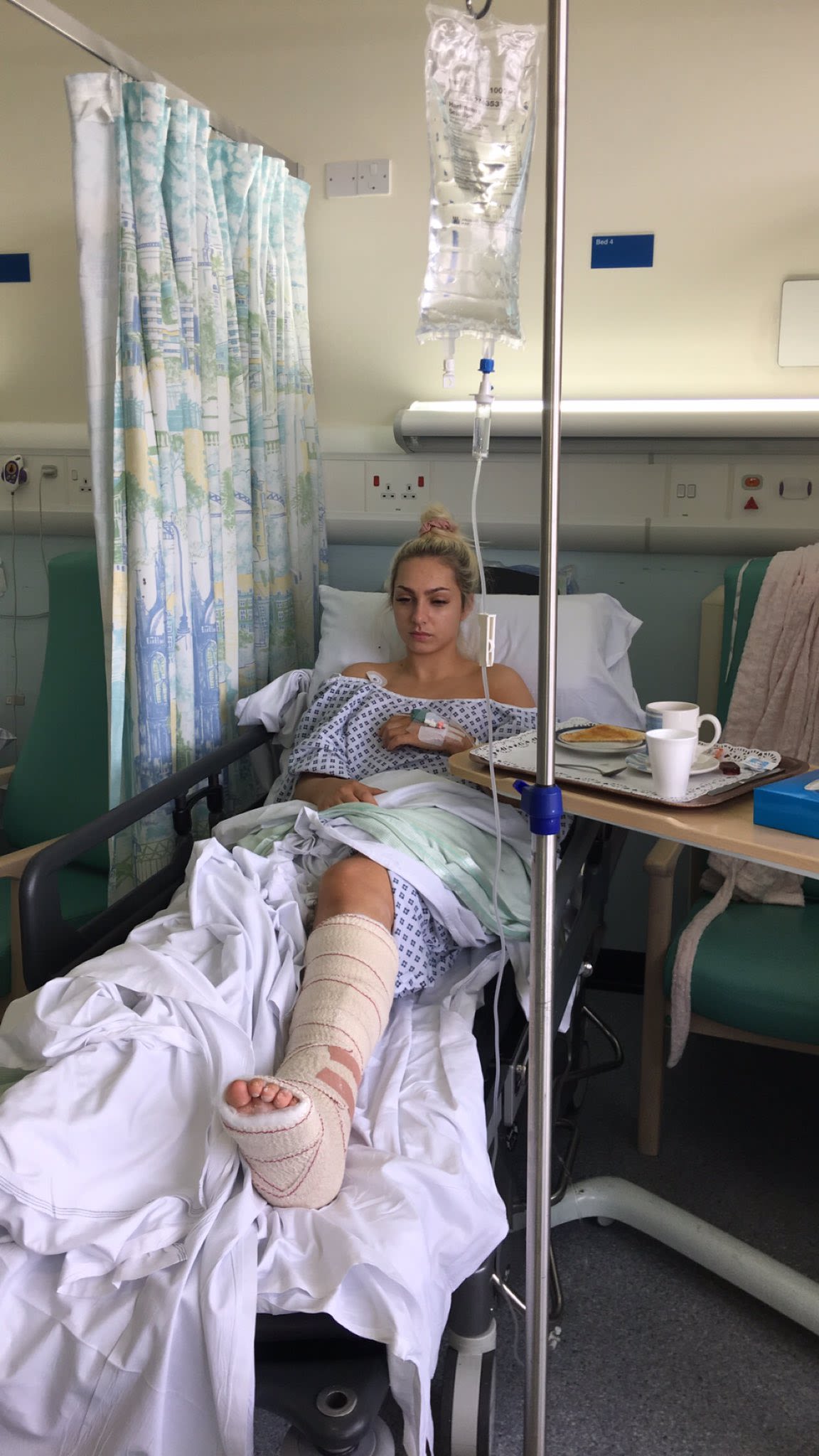Mental health in football
A series of investigative articles looking at how players deal with the struggles inside and outside of the game
Part One - Battling more than just an injury

Injuries, illness and retirement. How do players cope with being out of the game and what are the biggest challenges?

"Shockingly a third of footballers will be divorced within a year of retirement and two in every five Premier League players face bankruptcy within five years." - Barrington Atkins, expert in helping players after retirement/injury.
Footballers seem to have the world at their feet but what happens when that world comes crashing down in the blink of an eye? The top players have an easy route into punditry, coaching or scouting without having any or very little experience in that role. However, what about the players further down the footballing pyramid, the ones who did not quite make that final leap into the top two leagues, the ones who now have to cope with a 'normal life'?
"Most players I have spoken with struggle with an identity crisis after retirement." says Atkins, who has noticed a lack of identity with players after retirement as that is all they have known. He says: "To become a professional footballer at the top level, football will have consumed your entire life from childhood. To suddenly have that identity taken away, often leaves players feeling purposeless and lost." How do you go from doing one thing for your entire life to being almost abandoned? Unless you are a club or league legend you are not going to have anything handed to you anymore.
People can cope with being out of the game differently. Some can simply talk about it to family and friends, however, others attempt to keep it to themselves and fight on their own. This is when mental health issues start to become a reality for ex-players as they may be staring bankruptcy in the face with no way of making ends meet. Sometimes it does not feel like reality when players retire from the game as they have the summer like usual if they were still playing. However, this is when it clicks for many people as it's 'extremely hard as it only really hits home when everyone went back to pre-season and I wasn't.' says Matt Jarvis, former West Ham, and England winger who found this out quickly.
However, to come back from rejection or an injury requires a strong mindset and people behind you that love and care for you. Jarvis speaks of this in his life at the moment: "I have a great family and friends around me and I have a son of which I missed a lot of his first couple of years."
Knowing you are still in the peak years of your career can make it more difficult to overcome the thought of missing months of doing your job. From playing week in week out to 'kind of sitting around doing nothing'. Scott Fenwick, striker for Blyth Spartans suffered an Achilles injury two minutes into his return game from another injury which set him back three months. He admitted he was 'a bit worried' after going for his scans and admits: "I was advised there would be no walking or running without the moon boot, no swimming and no bike for at least a month. You’re kind of sitting around not doing anything and with me always being a full-time pro football has always been my only job and I don’t have another job so coming up to training and watching the matches and the lads and seeing them get beat and not being able to help them out. I think that is the worst possible scenario for anyone."
You could be the most determined and driven player in the squad but you still have bad days, as Fenwick did. He spoke of how he tackled those days: " Everyone helped me out, I’m quite a driven person I know what the football world is about. You have your bad days don’t get me wrong when you are really really down but you try to keep your mind busy and do other things to keep you positive."
An injury can make a player feel excluded and like an exile in quarantine that nobody wishes to bother with. You could be the biggest personality in the dressing room, the life and soul of the team then in a split second you are not to be seen for months. Fenwick felt this during his recovery: "when it’s long term you fall out with the banter and with me being one of the bigger and more lively personalities it’s been tough and hard to swallow."
The impact of a long-term injury can worry part-time players more than just about when they will be back out on the pitch. How will you provide for your family, what do you do with your day, how's best to recover as your next game is never guaranteed.
Players that have been in the game know injuries come and go and almost expect them every so often so they are told how best to deal with them when they occur. This comes through experience and specialist coaching. When you are still learning your trade in the game "you can feel isolated' says Jayden Maxwell who plays for Newcastle United women's team.

Maxwell had an operation in October and only got her moon boot removed at the start of January. She echoes the thought of feeling very alone and left on the sidelines while injured. She explains: "I’ve missed the team, the banter and just being around the girls, there is a sense of family amongst the group, everyone is so supportive. When you no longer have that you can feel isolated.
"It’s definitely been harder than I expected, football was a huge part of my life, I was playing almost every day, seeing the same people so I guess it can make you feel alone when you no longer have that."
Being out of football through injury can be one of the loneliest places to be as the road to recovery can seem never ending as Maxwell found out: "It has definitely affected me mentally as a player as I’m so used being around the squad almost every day, having a laugh and doing what I love to nothing at all. I miss the training, match days and the team."

Losing something you have done your whole life in a split second can send a players' world crumbling down but it's how they deal with those dark days that defines them as a person.